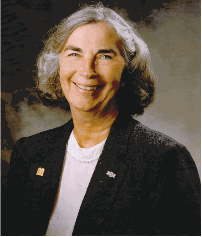|
Prologue
The legacy which Patrick Henry bequeathed to all Americans is little known or recognized, but it is a treasure well worth searching out. The discovery of the rich and enduring inheritance given us by this great man will far outweigh the costs of time and effort.
Patrick Henry was foremost in the fight for the disestablishment of religion in the Virginia colony, pressing for the rights of all Christians to worship according to the dictates of their own conscience.
While others throughout the colonies prepared petitions stating their objections to the proposed Stamp Tax, it was Patrick Henry who first introduced resolutions boldly opposing the Stamp Act and the seeds of tyranny it contained.
Patrick Henry was the very first to rise and speak in the cause of national liberty at the First Continental Congress in September 1774.
Patrick Henry was the first to say, "I am an American!"
He was the first, with Samuel Adams, to realize that independence was necessary to the security of American liberties.
He was the first military officer to lead a group of armed Virginians against the royal governor, demanding the return of military supplies which had been seized under the governor's orders. On August 5, 1775, he was elected the first Commander-in-Chief of all the Virginia forces.
Before July 2, 1776, the date of the final vote in the Continental Congress on the question of independence, Virginia had already declared independence, framed her Constitution, drafted her Bill of Rights, and elected Patrick Henry her first governor. Thus he became the first elected governor of a free republic under a written constitution in the history of the world!
He is the one most singularly responsible for the Bill of Rights, those first ten amendments to the United States Constitution, which secured to us those liberties we hold dear. He held those rights, endowed to us by the Creator, to be worth more than life itself. "Give me liberty, or give me death!" he said.
His contemporaries recognized him as the one who had sounded forth the trumpet in Liberty's defense, and he never called retreat. Though his contributions as an orator were unsurpassed in the American Cause, his abilities in many other ways were also essential to its ultimate success. It is fair enough to say that without Patrick Henry, there may not have been a free America.
What enabled him to see so clearly the consequences of the policies of George III?
What emboldened him to withstand the King of England himself with such courage?
What strengthened him to the arduous task ahead?
What guided him in the councils of government?
What endeared him to the hearts of the entire nation?
Mr. James Wells provides the answer to these questions. In his work he describes the methods he used in its preparation:
Various books presenting the background of Patrick Henry's period were examined, along with the writings and speeches of contemporary American leaders. All available biographies of Patrick Henry were also examined. Seeming incongruities in Patrick Henry's career were discussed with historians and theologians at the University of Houston and Rice Institute. Primary recourse, however, was in an intensive study of the personal correspondence and speeches of Patrick Henry himself.
Thank you, Mr. Wells, for a job well done. May we profit by Henry's example.
To read Part One Chapter One, please follow this link.
.
|
|

